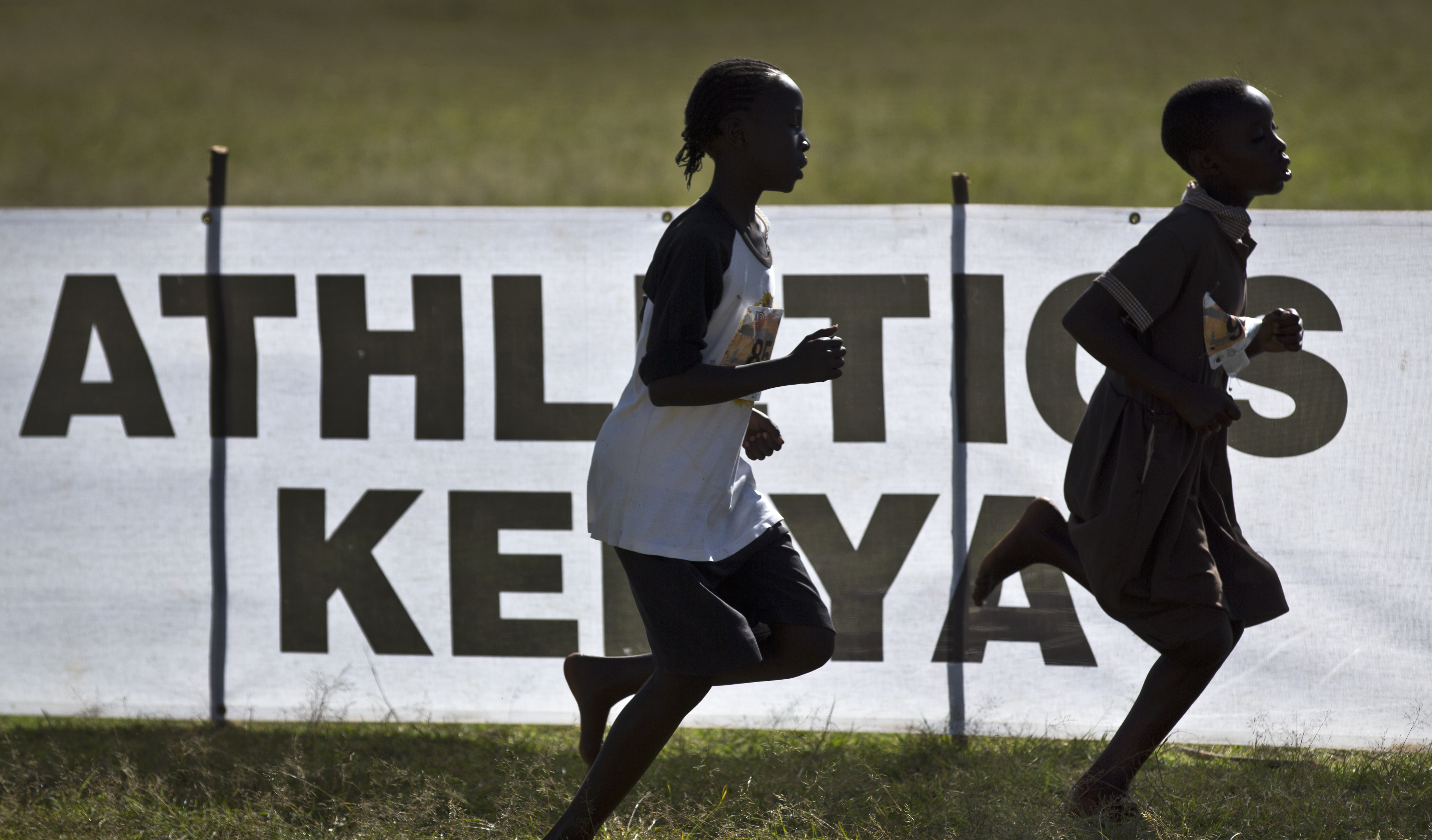Kenya under investigation for breaching anti-doping code

In this photo taken Sunday, Jan. 31, 2016, junior athletes run past a sign for Athletics Kenya at the Discovery cross country races in Eldoret, western Kenya. AP
Kenya is being investigated for breaching the world anti-doping code, WADA said Thursday, and could be declared non-compliant in a matter of weeks.
The World Anti-Doping Agency said an independent compliance review committee will now evaluate Kenya and make a recommendation to WADA’s board.
It’s also possible that Kenya could instead be given a deadline and a final chance to honor commitments it made to WADA regarding its anti-doping program.
The investigation relates to the Kenyan government’s failure to set up and properly fund a working national anti-doping agency, and also its failure to finalize new anti-doping legislation.
“We have not yet received the details nor the assurances we need from Kenya and, therefore, this is now a matter for our independent compliance process,” WADA said in a statement.
WADA expects a decision over Kenya’s status in a few weeks.
Although being declared non-compliant with the world anti-doping code is unlikely to prevent Kenyan athletes from competing internationally, it would be another embarrassment for the East African country, which is under severe scrutiny for its doping record.
Around 40 Kenyan runners have failed doping tests since the failures of the country’s anti-doping program were highlighted in 2012.
Senior Kenyan track and field officials have also been accused of corruption and cover-ups related to doping cases.
Two Kenyan runners told The Associated Press in an interview that the chief executive of Athletics Kenya, the national track and field body, asked them each for a $24,000 bribe to reduce their suspensions after they failed doping tests at last year’s world championships.
Athletes Joy Sakari and Francisca Koki Manunga told The AP that CEO Isaac Mwangi asked for the payment in an Oct. 16 meeting, but that they could not raise the money.
Also, three other senior officials, Athletics Kenya President Isaiah Kiplagat, vice president David Okeyo, and former AK treasurer Joseph Kinyua, were suspended for 180 days last November by global body the IAAF pending an investigation.
They are being investigated for “potential subversion of the anti-doping control process in Kenya” and allegedly embezzling sponsorship money meant for the federation from Nike, the IAAF’s ethics commission said.
Okeyo is a member of the IAAF’s governing council.
All the officials deny wrongdoing.
Following AP’s report in Kenya, the IAAF said Wednesday it had passed Sakari and Manunga’s allegations against Mwangi to its ethics commission. WADA said it is “most disturbed” by the allegations that sound “eerily similar” to other recent revelations of doping cover-ups in track and field, mostly focused on Russia. WADA said it would seek more information to determine if it should investigate.
Russia is one of five countries currently declared non-compliant with the world anti-doping code. The others are Andorra, Argentina, Bolivia and Ukraine.
Russian track and field athletes are excluded from international competition after a WADA report alleged state-sponsored doping and, acting on the report, the IAAF suspended the country’s athletics federation.
In the midst of its doping crisis, Kenya tied with Jamaica for the highest number of gold medals at last year’s track and field world championships in Beijing. Kenya won the second highest number of medals overall after the United States.